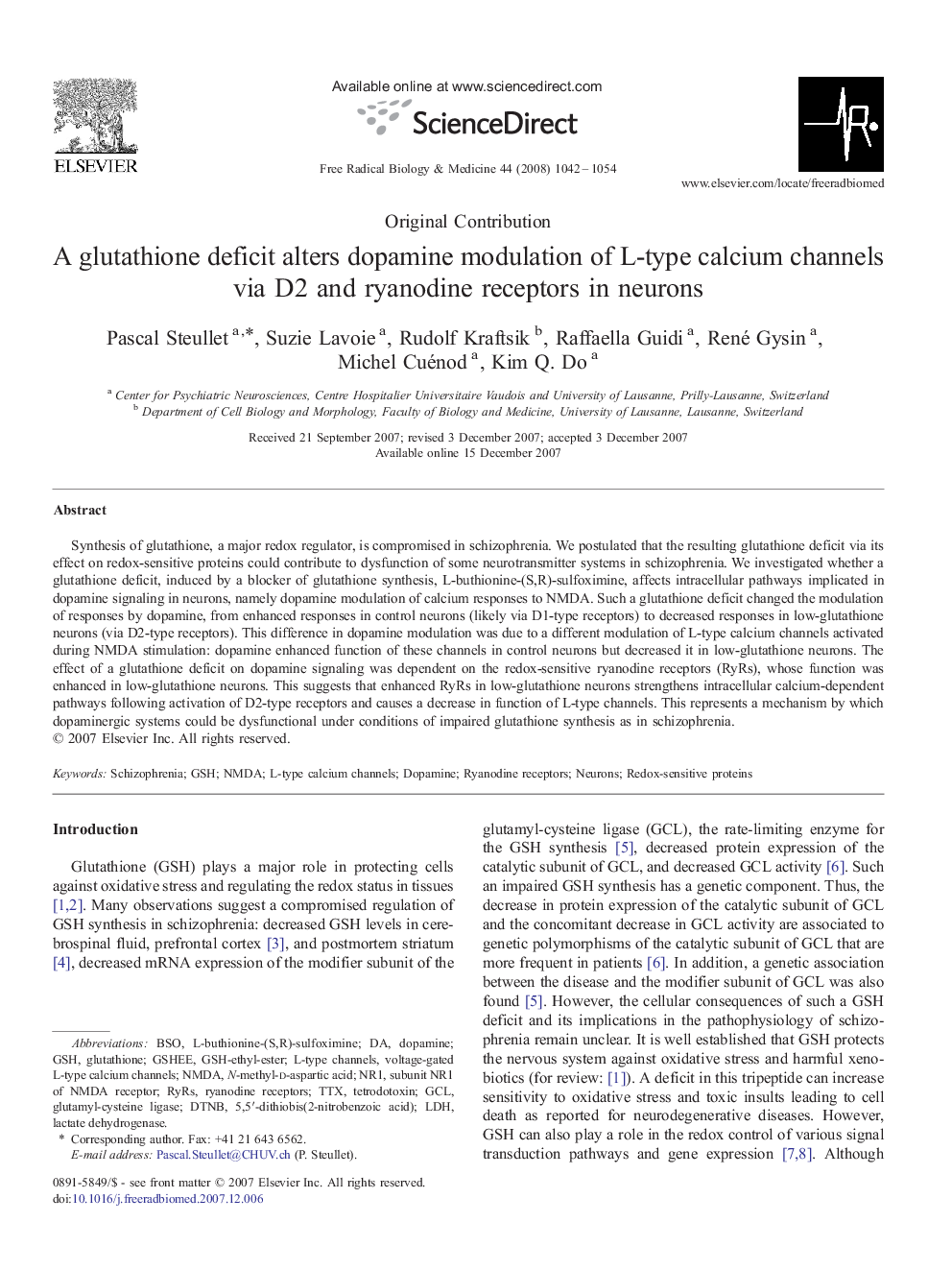| Article ID | Journal | Published Year | Pages | File Type |
|---|---|---|---|---|
| 1910790 | Free Radical Biology and Medicine | 2008 | 13 Pages |
Synthesis of glutathione, a major redox regulator, is compromised in schizophrenia. We postulated that the resulting glutathione deficit via its effect on redox-sensitive proteins could contribute to dysfunction of some neurotransmitter systems in schizophrenia. We investigated whether a glutathione deficit, induced by a blocker of glutathione synthesis, L-buthionine-(S,R)-sulfoximine, affects intracellular pathways implicated in dopamine signaling in neurons, namely dopamine modulation of calcium responses to NMDA. Such a glutathione deficit changed the modulation of responses by dopamine, from enhanced responses in control neurons (likely via D1-type receptors) to decreased responses in low-glutathione neurons (via D2-type receptors). This difference in dopamine modulation was due to a different modulation of L-type calcium channels activated during NMDA stimulation: dopamine enhanced function of these channels in control neurons but decreased it in low-glutathione neurons. The effect of a glutathione deficit on dopamine signaling was dependent on the redox-sensitive ryanodine receptors (RyRs), whose function was enhanced in low-glutathione neurons. This suggests that enhanced RyRs in low-glutathione neurons strengthens intracellular calcium-dependent pathways following activation of D2-type receptors and causes a decrease in function of L-type channels. This represents a mechanism by which dopaminergic systems could be dysfunctional under conditions of impaired glutathione synthesis as in schizophrenia.
